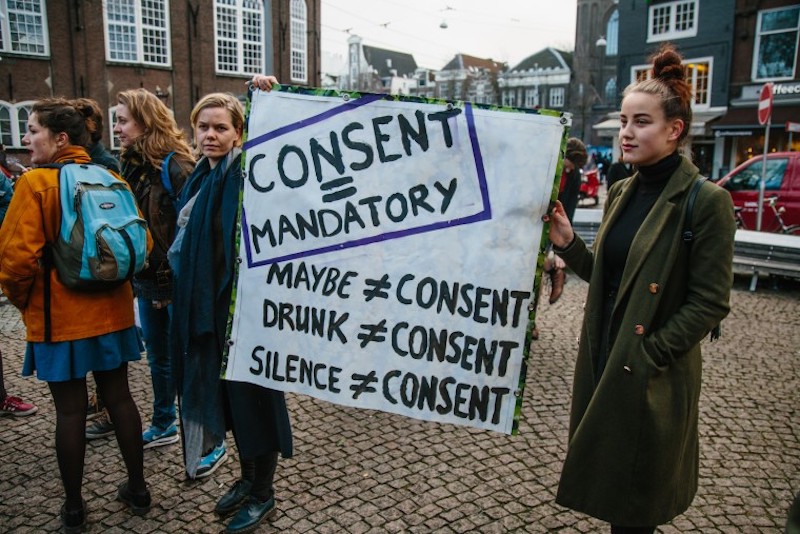By: Chelsea Perry
Consent. A small word, yet one that carries so much weight that the UPEISU dedicates a whole week to it. Entire organizations are established on it. Our daily interactions, our relationships, our jobs, our studies, and our general safety and wellbeing are all reliant on the understanding of this concept. I had a guy come up to me last week complaining that consent is “too hard†to understand because “we’re constantly changing the meaningâ€. My dude, if you’re reading this, this article is for you. Understanding consent isn’t difficult, and I’ve done my best to make it palatable, so for the sake of all your future sexual partners, read on.
I feel that, in 2018, most folk off the street could give me a basic answer of what consent means in regards to sex. OurTurn gives a solid definition of the term, describing consent as “the voluntary agreement to engage in sexual activity. It is the responsibility of the person initiating or engaging in a sexual activity to obtain clear and affirmative responses at all stages of sexual engagement.â€
From this we get the basic idea of what consensual sexual activity looks like. It seems straightforward, but as knowledge of the subject continues to evolve and the #MeToo movement has shed light on decades of individuals being figuratively gagged to preserve their careers, relationships, and reputations, as a society, we’re coming to understand that consent means a bit more than “yes means yes, and no means noâ€.
Rather than outlining everything that consent is, I’m going to outline everything that consent is not, as based off of OurTurn National’s Action Plan. A person is incapable of consent when:
- They are asleep, unconscious, or otherwise unable to communicate.
- They have been threatened or coerced (pressured involuntarily) into the act.
- They have been drugged.
- They are incapacitated due to drug or alcohol usage. This is so, so important, as alcohol and drug usage has been used in courts as both defense for the perpetrator, and as a form of victim blaming. Any sexual activity under the influence still absolutely requires affirmative consent.
- An individual’s profession can not imply consent. Those who engage in sex work maintain their bodily autonomy, and in no way does their job impact their ability to give or withdraw consent.
- A person who has a disability which limits his, her, or their ability ability to provide physical or verbal consent. In those cases, it must be established how consent will be given.
Sure, there will be outliers, but in case of doubt: if you’re second-guessing yourself as to whether or not you have consent, there’s a good chance you don’t. If it feels wrong, it probably is. It’s ridiculously simple.
With that, I hope you all go on to take in everything Consent Week has to offer. If sexual violence prevention is an issue you are passionate about, this is the part where I’m putting in a shameless plug for OurTurn UPEI. This Thursday and Friday, OurTurn will be hosting the What Were You Wearing? installation exhibit in the Student Centre, to debunk the myth that what you are wearing has any say in your susceptibility to experiencing sexual violence. If you’d like to get involved in OurTurn in any capacity this year, email me at cperry2@upei.ca. We’d be happy to have you.
Photo: Pintamawi
